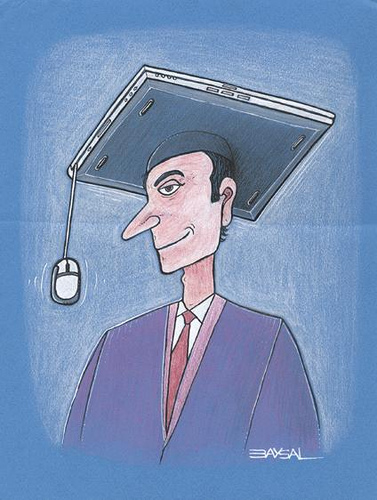
- •Module 1 education in great britain
- •Match the words with their translation.
- •2. Now listen to the track and say what these numbers refer to.
- •Uk Education System
- •3. Read the text carefully. Find and correct 7 spelling mistakes in it.
- •4. Make up questions to the words or expressions in italics. Practise asking and answering questions in pairs.
- •5. Work in pairs, a and b.
- •My Oxford
- •7. Look through the text and say what was Naomi’s attitude to her University.
- •8. Fill in the gaps in the interview with these questions. You have one extra question that you do not need to use.
- •Listen to the interview with Dr Philip Camp from Edinburgh University. Are these sentences true (t) or false (f)?
- •Listen to the interview again. Answer the following questions:
- •Write down 10 sentences about your University and its traditions. Use the key words from exercises 13-15.
- •19. Match the words to make collocations and match them with their translation
- •20. Complete the sentences with the collocations from ex. 2
- •21. Watch the clip again. Answer the questions?
- •23. Write an essay (about 120-170 words) on one of the following topics:
- •Module 2 education in the usa
- •Practise the pronunciation of the following words
- •Match the terms with their definitions. Think of possible Russian equivalents for these words
- •3. Read the text. The words in brackets are to be used in the correct form the system of higher education in the usa
- •4. Mark the statements as true (t) or false (f). Give comments wherever possible
- •Answer the following What-questions
- •Are the aspects of higher education the same or different from those in your country? Tick the correct box
- •7. Using the material above make up a dialogue on one of the following situations:
- •Work in pairs. Student a reads the first text, student b reads the second one. Ask and answer each other’s questions.
- •9. Discuss the following questions.
- •11. Try to write an equation mentioned in the talk.
- •12. Make a list of advice Melissa gives to scientists on their presentation of the material. Think of two more things to add to it.
- •13. Match the words to make collocations which match the definitions. Watch the video-clip “Standard academic questions and how to answer them” to check your answers.
- •14. Watch the video- clip again and complete the following summary of the presenter’s speech. The first letters of the necessary words are given to help you.
- •15. Match the words with their opposites
- •16. Fill in the gaps in the text with the words from the box
- •17. Look at the stimulating material (written information, pictures, headlines). Answer the questions after it.
- •Harvard Students in Cheating Scandal Say Collaboration Was Accepted By richard pérez-peña Published: August 31, 2012
- •In Harvard Now!
- •18. Choose one of the quotes about Harvard and explain what it means.
- •19. Project
- •Internet Search Task: Search the net to find information on the following points. The results are to be summarized in the form of presentation. The task can be done in groups of two or three.
9. Discuss the following questions.
Have you ever attended a lecture on a very specific area of knowledge? If yes, was it difficult to understand the topic? What were your impressions?
If you were to tell somebody about your research, how would you do it? Would you use terms or would you try to explain everything in a clear simple way?
What does “nerd” mean? How are nerds connected to science?
What are the keys to a good presentation of a scientific material?
10. Listen to the track “Talk nerdy to me” where Melissa Marshall tells about her experience. Mark the statements as true (T) or false (F). Compare your answers with your partner. Correct false statements.

Melissa Marshall was happy to teach communication class for engineering students.
Our communication with scientists will help to change the world.
Talking to scientists, we need to understand how their research is connected with our life.
Jargon improves our understanding.
Scientists should use stories, analogies and examples in their presentation.
It is impossible for scientists to make ordinary people understand their topic.
11. Try to write an equation mentioned in the talk.
12. Make a list of advice Melissa gives to scientists on their presentation of the material. Think of two more things to add to it.
Watching 1
Before viewing
13. Match the words to make collocations which match the definitions. Watch the video-clip “Standard academic questions and how to answer them” to check your answers.
e.g. 11- k temptation to go on which means “a strong wish to continue”
1) significant |
situation |
a) A book that is really important |
2) Introductory survey |
grades |
b) questions which describe possible ways of reacting in a situation |
3) fake |
questions |
c) a reasonable, fair question |
4) Standard |
book |
d) the course that provides a general view of an academic subject |
5) to handle a |
question |
e) ordinary themes for discussion |
6) behavioral-based |
questions |
f) unreal response describing the situation that never happened |
7) comfort |
universities |
g) the institution which focuses on scientific investigations |
8) a legitimate |
answer |
h) marks |
9) research-intense |
level |
i) How well you feel in the environment |
10) honors and |
course |
j) to deal with a situation |
11) temptation |
to go on |
k) a strong wish to continue |
